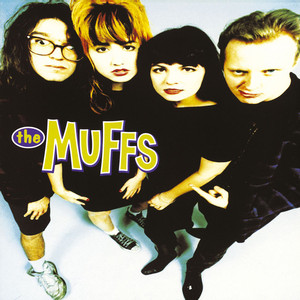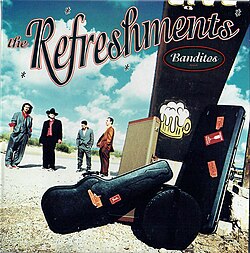 “Big Poppa” by The Notorious B.I.G. is a masterclass in swagger. It’s the sound of confidence gliding over a velvet beat, a distillation of charm, presence, and effortless cool. Released in December 1994 as the second single from Ready to Die, Biggie’s landmark debut album, the track became a cultural touchstone—one of the definitive hip-hop songs of the 1990s and a crystallization of everything that made Biggie Smalls more than a rapper, more than a hustler, more than a flash in the pan. “Big Poppa” is seduction, skill, and status in audio form, and it remains one of the most iconic hip-hop records ever made.
“Big Poppa” by The Notorious B.I.G. is a masterclass in swagger. It’s the sound of confidence gliding over a velvet beat, a distillation of charm, presence, and effortless cool. Released in December 1994 as the second single from Ready to Die, Biggie’s landmark debut album, the track became a cultural touchstone—one of the definitive hip-hop songs of the 1990s and a crystallization of everything that made Biggie Smalls more than a rapper, more than a hustler, more than a flash in the pan. “Big Poppa” is seduction, skill, and status in audio form, and it remains one of the most iconic hip-hop records ever made.
What sets “Big Poppa” apart from so many songs in its era—and still today—is the way it manages to blend laid-back luxury with lyrical dexterity. At first listen, it seems simple: a party anthem, a club track, a slow jam for late-night sessions. But just beneath the surface is the intricate genius of Christopher Wallace, a Brooklyn street poet who could flip a narrative in a single bar, turn a pickup line into philosophy, and elevate the art of rapping into something operatic. “Big Poppa” is a smooth banger that introduced millions to Biggie’s range—not just his ability to spit raw street tales, but to slow things down, control a room, and ooze charisma from every syllable.
The production, handled by Chucky Thompson of Bad Boy’s in-house Hitmen team, is built around a sample of “Between the Sheets” by The Isley Brothers. It’s a perfect choice—warm, sultry, and hypnotic, the instrumental glides like silk across the speakers. The use of that sample wasn’t just a nod to musical predecessors, it was an intentional invocation of mood. It created a soundscape where Biggie could shift from kingpin to Casanova, from menace to romantic. Sampling in hip-hop had always been about repurposing, recontextualizing, flipping the past into the present. But here, the sample feels less like a beat and more like a plush sofa that Biggie lounges on while he talks game to a woman and drops jewels for his listeners.
The lyrics of “Big Poppa” tell you everything about the man behind the mic without ever breaking a sweat. “I love it when you call me Big Poppa / Throw your hands in the air, if you’s a true player.” That opening line is as immortal as anything in the hip-hop canon. It’s not just a hook—it’s a statement. Biggie isn’t demanding the spotlight. He already has it. The way he delivers it—smooth, melodic, with that deep, rolling voice that sounded like gravel mixed with honey—cements his status not as a brash newcomer, but as a man already in control. This was his world, and we were just passing through it.
Throughout the track, Biggie balances boasts with intimacy, coolness with substance. He drops lines about Versace, Hennessy, and Moët, but also reflects on respect, loyalty, and how to treat a woman right. His charisma doesn’t come from shouting or aggression—it comes from presence, restraint, and wit. His flow is impeccable: relaxed yet precise, never hurried, always in the pocket. It’s like he’s having a conversation with the beat, and every word he says is exactly the right one.
“Big Poppa” wasn’t just a party anthem—it was a branding statement. With this single, Biggie shifted the image of the street hustler into something more elevated. He wasn’t wearing baggy clothes and Timbos anymore; he was in silk shirts, popping bottles in hotel suites, dropping baritone lullabies over soul samples. He wasn’t just grimy; he was glamorous. It marked a turning point in hip-hop’s aesthetic, opening the door for a kind of luxury rap that artists from Jay-Z to Drake to Rick Ross would expand upon in the decades that followed. Biggie showed that you could come from the gutter and still present yourself like royalty.
The song’s hook was more than just catchy—it was immediately iconic. “I love it when you call me Big Poppa” became a pop culture catchphrase, printed on t-shirts, shouted in clubs, and even quoted in films and TV shows. The phrase solidified Biggie’s alter ego—Big Poppa, the larger-than-life, smooth-talking player who could seduce with a smirk and command respect without lifting a finger. That identity wasn’t fake; it was the performance of a persona Biggie crafted with surgical precision. His real life was full of pain, poverty, danger, and death. But “Big Poppa” was about transcendence. It was about being more than your circumstances.
The music video for “Big Poppa” also played a critical role in the song’s mythmaking. Set in a swanky nightclub, the video shows Biggie holding court, surrounded by women, sipping champagne, laughing with friends, and exuding calm confidence. Puffy (later Diddy) makes his presence felt, as always, and the energy of the Bad Boy era is unmistakable: polished, ambitious, and magnetic. The visual cemented Biggie’s place as not just a rapper but a lifestyle icon—a man whose words and image could shape the culture. He wasn’t just speaking for Brooklyn anymore. He was speaking for everyone who dreamed of turning struggle into luxury.
Yet, beneath all the shine, there’s depth in “Big Poppa” that only reveals itself with repeated listening. For all its smoothness, the song is rooted in Biggie’s fundamental understanding of duality. He could spit bars about shootouts and death on one track and then glide through something sensual and confident on the next. He understood that survival wasn’t just about strength—it was about adaptability. “Big Poppa” doesn’t apologize for being a feel-good song. It embraces it. But it does so with the weight of everything else Biggie carried with him—the pain, the fear, the intelligence, the street knowledge, the ambition.
“Big Poppa” was released during a time of immense transformation in hip-hop. The West Coast had been dominating with Dr. Dre, Snoop Dogg, and the G-funk sound. East Coast rap, once the genre’s beating heart, was looking for a revival. Biggie, alongside Nas, Wu-Tang Clan, and others, brought that resurgence. But where Nas was cerebral and abstract, and Wu-Tang was chaotic and martial, Biggie offered something else—narrative clarity, style, and balance. With Ready to Die, and particularly with “Big Poppa,” he helped re-center New York in the hip-hop conversation.
The track went on to become one of Biggie’s biggest commercial successes. It was nominated for a Grammy for Best Rap Solo Performance, sold over a million copies, and became a staple of radio and MTV. But its impact far outweighed its chart position. “Big Poppa” helped define the sound of ‘90s hip-hop, and it showcased Biggie’s ability to shape-shift between personas. He could be the street corner storyteller on “Warning,” the introspective philosopher on “Everyday Struggle,” and the charming seducer on “Big Poppa”—all on the same album.
Its cultural impact has only grown over time. Even after Biggie’s tragic death in 1997, “Big Poppa” has endured as one of the defining tracks of his legacy. It’s been sampled and interpolated by dozens of artists, referenced in films and TV shows, and remains a staple at parties and hip-hop nights. It’s one of those songs that seems to transcend time—it sounds as fresh today as it did when it first dropped, and younger generations continue to discover its magic. That’s the mark of a classic.
More than just a banger, “Big Poppa” is a song that helped reshape the image of what a rapper could be. It helped introduce mainstream audiences to a form of masculinity that was confident without being aggressive, smooth without being soft, fun without being foolish. Biggie was a big man with a big voice and a bigger brain, and on “Big Poppa,” all of that comes through. He wasn’t rapping just to show off—he was crafting a persona, a sound, a style. He was building something that would outlast him. And it did.
There’s a reason why when people think of Biggie, they often think of this song. Not because it’s his most complex or emotionally raw track—it isn’t. But because it’s the moment where everything aligned: the beat, the flow, the image, the hook, the charisma. It’s a song that makes people feel good, that makes them move, that makes them smile. And yet it still carries that Brooklyn grit beneath the surface. That’s a hard balance to strike. Biggie made it look easy.
“Big Poppa” isn’t just a love letter to women, luxury, and confidence—it’s a love letter to the possibilities of hip-hop. It shows that rap could be both hardcore and suave, both streetwise and radio-ready, both smart and sexy. It broke barriers without making a scene about it. It just existed—brilliantly—and let the world adjust around it.
Biggie once said, “Stay far from timid, only make moves when your heart’s in it.” “Big Poppa” is the sound of someone following that ethos to perfection. Every line, every beat, every pause is deliberate. It’s a flex, yes. But it’s also a reminder of what it looks like when talent meets vision meets timing. It’s a song that doesn’t need to raise its voice to command attention. It just speaks—and the whole room listens.
Decades later, “Big Poppa” remains one of those rare tracks that never lost its luster. It’s comfort food for the culture. It’s a blueprint for cool. And it’s a monument to the genius of The Notorious B.I.G., whose voice still echoes through every beat that dares to strut instead of sprint. “Big Poppa” was Biggie at his most playful, his most charming, his most iconic. And that’s why we still throw our hands in the air—because we know what it means to be a true player. And we know Biggie’s still watching, nodding from above, silk shirt on, glass in hand, forever smooth.


